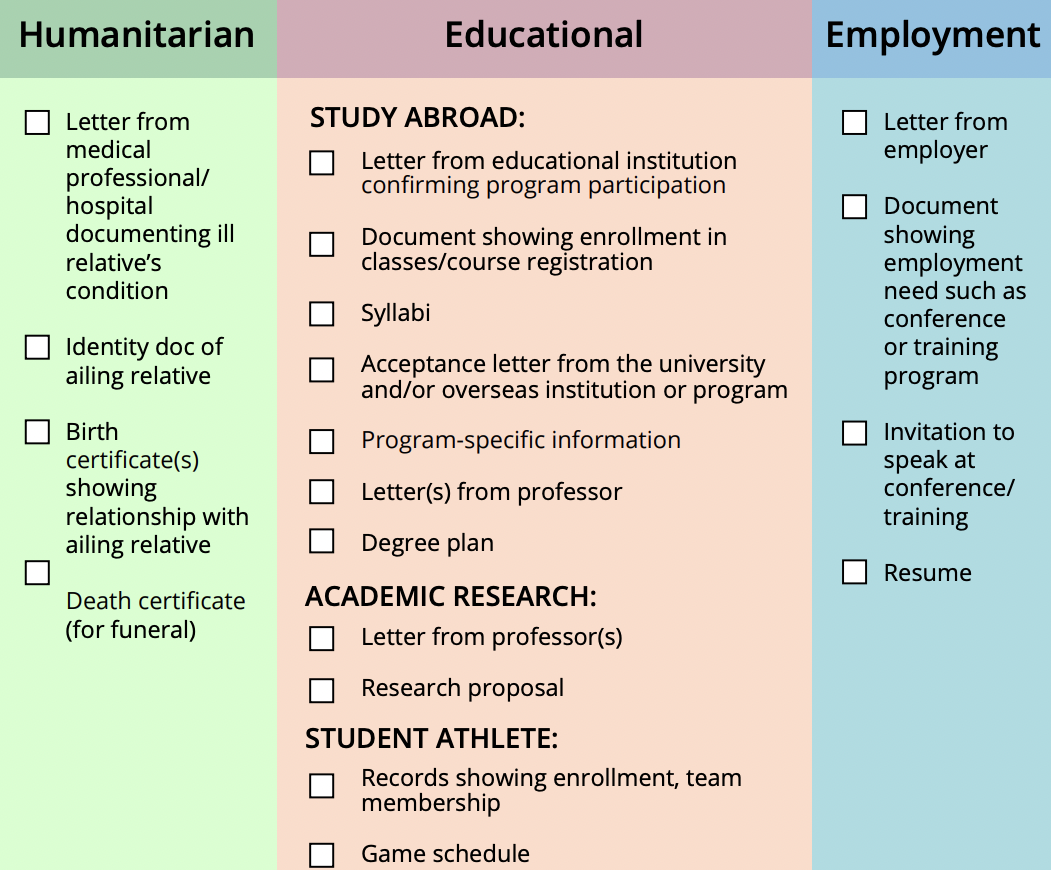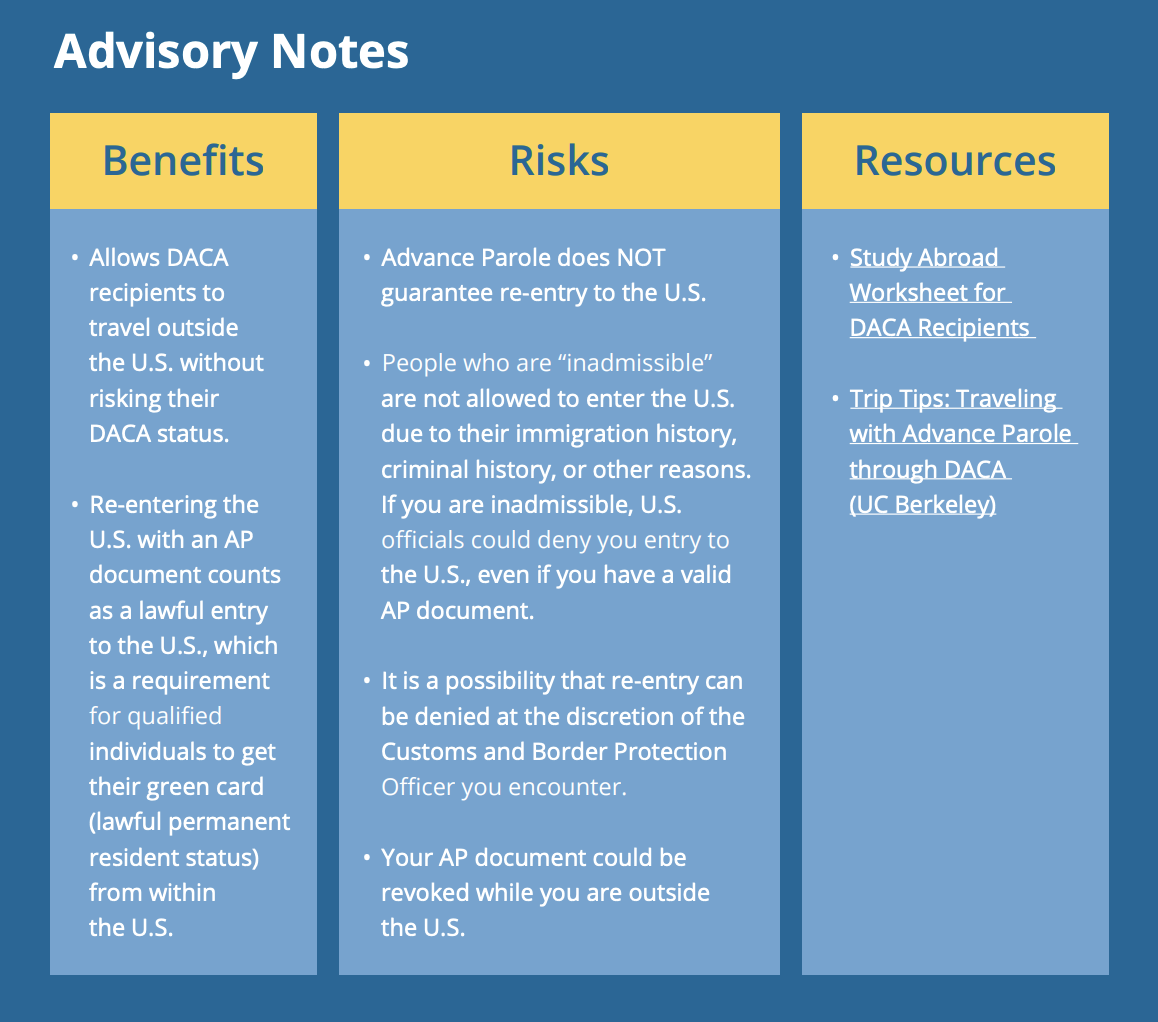DACA recipients who want to travel outside the United States may be able to do so. You must apply for advance parole by filing a Form I-131, Application for Travel Document and paying the applicable fee ($575). USCIS will determine whether your purpose for international travel is justifiable based on the circumstances you describe in your request. Generally, USCIS will only grant advance parole if your travel abroad will be in furtherance of:
- Humanitarian purposes, including travel to obtain medical treatment, attending funeral services for a family member, or visiting an ailing relative;
- Educational purposes, such as semester-abroad programs and academic research; or
- Employment purposes such as overseas assignments, interviews, conferences or training, or meetings with clients overseas
Your application must include evidence that supports the basis of your request (copy of deceased relative's death certificate, proof of enrollment in a travel abroad program, etc.)
Additional Guidelines

- Travel for vacation is not a valid basis for advance parole.
- All advance parole requests will be considered on a case-by-case basis.
- Individuals who have been ordered deported or removed should consult with an immigration attorney, as additional steps may need to be taken before applying for advance parole.
- If you travel outside the United States without first receiving advance parole, your departure automatically terminates your deferred action under DACA.
Risks

There are several risks to consider before applying for advance parole:
- Air travel involves potential exposure to COVID-19, and the CDC recommends against travel to most countries due to COVID-19
- Some countries have restricted travel from the US due to the pandemic
- Advance parole recipients are subject to secondary inspection upon return to the US, which can be extremely intimidating and time-consuming
- Even with an advance parole document, re-admission to the US is not guaranteed
Find more information from our UC Immigrant Legal Services Center (updated March 2021). Please email us at UCDavisImm@law.ucdavis.edu with additional questions.
